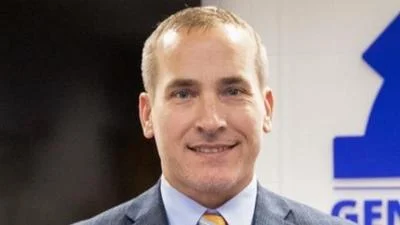Sen. Dave Syverson | File photo
Sen. Dave Syverson | File photo
A new grocery tax has been implemented in Illinois, effective July 1, and Sen. Dave Syverson recently took to social media to discuss his concerns.
Syverson shared a video on Facebook where he talked about the “new grocery tax” that went into effect. He criticized the work of Democrats, noting that he voted against the budget that imposed this tax.
“Unfortunately, the majority party chose to expand hundreds of programs, including healthcare for undocumented immigrants, give pay raises, start new programs, and to pay for that, not only giving relief, but putting a tax back on groceries,” Syverson said. “Not only are families not going to see any tax relief, they’re actually going to be hit with this new grocery tax going into effect July 1. I want you to know I voted against the budget that put this $400 million tax back on Illinois citizens. I’m going to work to get this tax repealed, but for now, unfortunately, this tax is going to hit you this weekend.”
The grocery tax was suspended in 2022, according to the Illinois Department of Revenue’s Illinois Grocery Tax Suspension information sheet. From July 1, 2022, through June 30, 2023, the tax that was normally 1% was shifted to zero. There was, however, an additional local tax on groceries that was not suspended in the Regional Transportation Authority or Metro-East Mass Transit Districts.
According to a report by Kiplinger, the grocery tax suspension is not the only thing that stopped on July 1. The gas tax increase that had been planned for July 2022 was suspended until January 2023. There was another tax increase on gas set for July 1 at 45.4 centers per gallon. Kiplinger noted that the 1% grocery tax is a reduction from the normal 6.25% tax.
Capitol News Illinois noted that the revenue from the motor fuel tax and license and registration fee increases that occurred in 2020 were part of a plan to fund the Rebuild Illinois 6-year infrastructure plan. That plan calls for $44.2 billion to rehabilitate and upgrade roads and bridges throughout the state.






 Alerts Sign-up
Alerts Sign-up